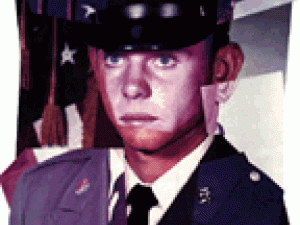Difference between revisions of "Monte Overacre"
(still a draft) |
m (some tidy) |
||
| Line 27: | Line 27: | ||
}} | }} | ||
}} | }} | ||
| − | '''Monte Overacre''' | + | '''Monte Overacre''' was a [[CIA]] spook. In [[1992]], after nearly a decade of [[paramilitary]] work in [[Central America]] and [[Southeast Asia]], Overacre was retrained in [[telecommunications]], and deployed in [[San Diego]], where he was tasked with recruiting visiting foreign technology experts to spy for the U.S. back in their home countries<ref name=motherjones>https://www.motherjones.com/politics/1998/01/left-out-cold/</ref> |
After quitting the agency in 1994, he started talking - too freely - to journalist [[Robert Dreyfuss]]. Overacre went back on a mission to [[Guatemala]], where he died in a suspicious 1995 air crash. | After quitting the agency in 1994, he started talking - too freely - to journalist [[Robert Dreyfuss]]. Overacre went back on a mission to [[Guatemala]], where he died in a suspicious 1995 air crash. | ||
Revision as of 02:38, 3 January 2024
(spook) | |
|---|---|
 | |
| Born | July 30, 1955 Idaho, USA |
| Died | 5 April 1995 (Age 39) Guatemala |
Cause of death | Air crash |
| Exposed | economic espionage |
| Victim of | assassination? |
Monte Overacre was a CIA spook. In 1992, after nearly a decade of paramilitary work in Central America and Southeast Asia, Overacre was retrained in telecommunications, and deployed in San Diego, where he was tasked with recruiting visiting foreign technology experts to spy for the U.S. back in their home countries[1]
After quitting the agency in 1994, he started talking - too freely - to journalist Robert Dreyfuss. Overacre went back on a mission to Guatemala, where he died in a suspicious 1995 air crash.
Asset recruitment
Overacre operated in San Diego under a cover provided by the U.S. Department of Commerce, using his real name. [1]
“Monte Overacre's most important job was recruiting overseas spies. He worked on the campus of a university (though he carefully guarded the identity of the university) in the San Diego area, where he managed a team posing as telecommunications academics, recruiting visiting foreign technology experts to spy for the U.S. back in their home countries-from South America to Europe, Africa to Asia-to keep the agency on top of new technological innovations. Under the guise of running a series of seminars on telecommunications, Overacre and his MXSCOPE team would invite scientists, engineers, and government and corporate officials from all over the world to come to San Diego. Once there, unwitting attendees would be scoped out by Overacre, evaluated, and targeted for recruitment as potential CIA agents, or "assets," after they returned to their home countries. The recruitment efforts were typically unsavory. "The old methods work even with the nerds, sometimes even better," he wrote. "Trips to massage parlors, strip clubs, wild bars with aggressive white women, etc., make these guys come unglued, just like any truck driver. Once you have gotten a guy laid and paid the bill for him, you have a friend for life. Eventually, the recruits would probably be handled by a CIA case officer working out of the U.S. embassy or, more frequently, operating under nonofficial cover, posing as an American businessman. By then, the new agents likely would be on the CIA’s payroll.”
Mother Jones, Robert Dreyfuss (1998) [2]
The recruitment efforts were typically unsavory. "The old methods work even with the nerds, sometimes even better," he wrote. "Trips to massage parlors, strip clubs, wild bars with aggressive white women, etc., make these guys come unglued, just like any truck driver. Once you have gotten a guy laid and paid the bill for him, you have a friend for life. Trust me, it almost always works if the assessment shows a lack of nooky in the target’s profile."[1]
The most attractive targets, he wrote in an e-mail, were the experts in such sought-after technologies as “digital switch architectures, placements, telecom network design and hierarchies, digital microwave frequencies, [and] types and manufacture of digital optical fiber being laid to replace old twisted-pair networks."[1]
Overacre, finding the office job boring, allegedly left the CIA in October 1994.[1]
Death
In the last month of Overacre’s life, he was scared. "He started running into people he knew from the old days, people in the Guatemalan army, from the air force, people who knew him from his days with the CIA," says his brother Dave. And, says Lora Dillon, Overacre "started doing some countersurveillance" to try to make it harder for anyone to tail him.[1]